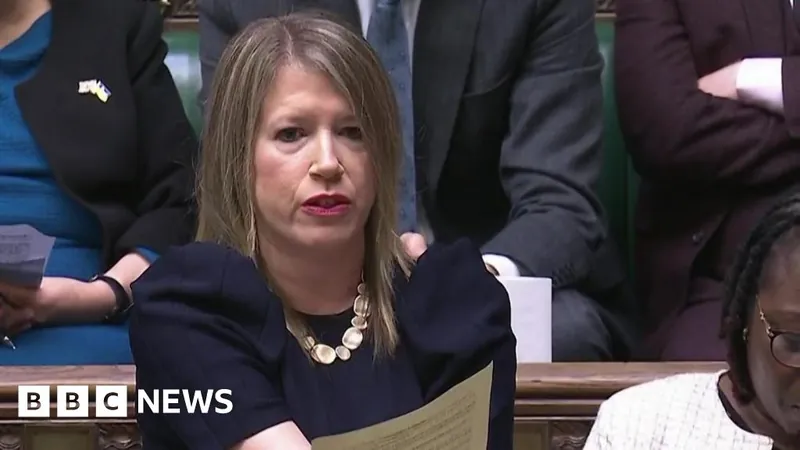
Assisted Dying Bill Sparks Debate Among MPs with Key Concerns Still Unresolved
2024-11-30
Author: Ling
Introduction
The recent passage of the assisted dying bill in the House of Commons has ignited intense discussions among Members of Parliament (MPs) who supported the legislation but now voice significant concerns about certain provisions within it. The bill aims to grant adults who are terminally ill—specifically those with less than six months to live—the right to end their lives with medical assistance, following approval from two doctors and a High Court judge. It has garnered a majority of 55 votes in its initial stage, marking a significant milestone in a debate that has simmered for nearly a decade.
Concerns Raised by MPs
However, tensions are rising as some MPs express worries about allowing physicians the authority to introduce assisted dying as a conversation topic without it being initiated by the patient. Labour MP Mike Tapp from Dover and Deal stressed that it is crucial to clarify in the bill that doctors should not raise the option of assisted dying with patients. “This approach is essential to mitigate any risk of unintended coercion during an already sensitive time,” he explained.
Roz Savage, a Liberal Democrat MP, echoed this sentiment, emphasizing that the decision regarding assisted dying should be driven exclusively by the patient. “This is about providing a choice, not imposing it. No healthcare provider should suggest assisted dying to anyone,” she reiterated.
Professional Judgment of Doctors
As the bill undergoes further examination and more rounds of voting in the coming months, the British Medical Association (BMA) has also weighed in, stating that doctors should not be legally obliged to refrain from discussing assisted dying if deemed appropriate. Their standpoint emphasizes the importance of doctors utilizing their professional judgment in navigating this deeply ingrained issue.
Advocacy for Comprehensive Care Options
Other MPs, like Labour’s Marie Tidball, advocate for the law to ensure that all possible options—including comprehensive palliative care—are presented alongside assisted dying. “Patients deserve a full range of choices; assisted dying should be an informed option among several, ensuring it is not the only path presented to them,” Tidball conveyed firmly.
Potential Risks and Future Voting
Concerns about the legislation were heightened when Conservative MP Danny Kruger warned that the bill could face failure in later voting stages if MP reservations are not adequately addressed. Many of his party members view the bill as perilous and are calling for stronger safeguards to prevent potential pitfalls associated with assisted dying legislation.
Conclusion
As the debate progresses, it remains clear that while there is momentum for change, the path forward is fraught with complications. The assisted dying bill, having crossed its first hurdle, will continue to evolve through continued scrutiny, and amendments may very well reshape its final form.
The current landscape reflects a pivotal moment in UK legislative history, as public perception and ethical considerations surrounding assisted dying remain at the forefront of political discourse. As MPs prepare for more discussions, the stakes have never been higher for those advocating for or against the bill. The future of this profoundly personal and societal issue rests in their hands, with many eyes watching closely as this critical dialogue unfolds.


 Brasil (PT)
Brasil (PT)
 Canada (EN)
Canada (EN)
 Chile (ES)
Chile (ES)
 España (ES)
España (ES)
 France (FR)
France (FR)
 Hong Kong (EN)
Hong Kong (EN)
 Italia (IT)
Italia (IT)
 日本 (JA)
日本 (JA)
 Magyarország (HU)
Magyarország (HU)
 Norge (NO)
Norge (NO)
 Polska (PL)
Polska (PL)
 Schweiz (DE)
Schweiz (DE)
 Singapore (EN)
Singapore (EN)
 Sverige (SV)
Sverige (SV)
 Suomi (FI)
Suomi (FI)
 Türkiye (TR)
Türkiye (TR)